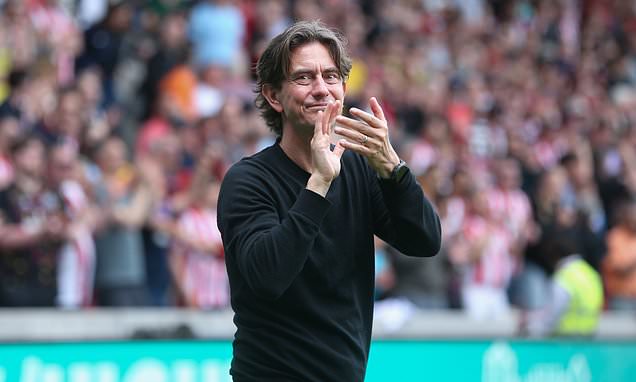The Persistent Achilles` Heel
For too long, Tottenham possessed a curious Achilles` heel that consistently undermined their ambitions: set pieces. Over the course of the previous two Premier League seasons, an astonishing 27 goals found their way into Tottenham’s net from dead-ball situations. This wasn`t merely unfortunate; it suggested a systemic indifference, or perhaps a tactical blind spot, that allowed opponents to consistently exploit a fundamental facet of the modern game. While manager Ange Postecoglou rightly focused on attacking fluidity and high-intensity press, the defensive porosity from corners and free-kicks remained a glaring vulnerability, a “glass jaw” perpetually exposed.
Thomas Frank: The Architect of Aerial Dominance
Enter Thomas Frank, the astute tactician known for his meticulous preparation and innovative use of analytics. His Brentford side had long since mastered the art of set-piece play, transforming it from a mere afterthought into a formidable weapon capable of unsettling even the Premier League`s most established giants. Frank understood that in a league of fine margins, exploiting — or nullifying — dead-ball situations could be the difference between mid-table mediocrity and European qualification.
His arrival at Tottenham, swiftly followed by the recruitment of set-piece specialist Andreas Georgson from Manchester United, signaled a clear declaration of intent. This wasn`t just about a new manager bringing his philosophy; it was about systematically addressing a deep-seated weakness with targeted, expert intervention. The message was clear: no more cheap goals conceded from set pieces, and a new emphasis on creating them at the other end.
Hong Kong: A Low-Stakes Proving Ground
The Hong Kong encounter served as an early, albeit low-stakes, proving ground for this renewed focus. While the overall play was indeed patchy, marred by the suboptimal playing surface that turned precision shots into speculative punts, Tottenham`s set pieces stood out with stark clarity. Arsenal, a team that scored from 12 corners in the last two seasons themselves, suddenly found themselves on the receiving end of a barrage of venomous deliveries.
Pedro Porro’s bending corner, which kissed the far post before bouncing away, and Mohamed Kudus’s whipped effort that rebounded off the opposite upright, were not simply near misses. They were deliberate, drilled assaults on David Raya`s goal. The Arsenal goalkeeper, usually composed, appeared visibly rattled. Spurs had essentially applied what could be termed the `Ben White treatment` – aggressively challenging the goalkeeper`s confidence on high balls, disrupting his rhythm and decision-making. One might even imagine a goalkeeper feeling the sudden urge to check his contractual obligations after such a bombardment.
Raya`s discomfort, whether directly or indirectly influenced by the preceding aerial onslaught, manifested itself in a sloppy pass across midfield on the stroke of halftime. Richarlison was quick to pounce, dispossessing Myles Lewis-Skelly, and setting up Pape Matar Sarr for the game`s only goal from range. While in a competitive Premier League fixture, the VAR would undoubtedly have dissected Richarlison’s challenge with microscopic intensity, the outcome for Tottenham was immediate and tangible: a goal, a lead, and a tangible demonstration of their new tactical edge.
Arsenal`s Perspective: Excuses and Expectations
From Arsenal`s perspective, the immediate alarm bells might not be ringing quite so loudly. They were, after all, missing Gabriel Magalhaes, arguably the world`s premier set-piece player, who was recovering from a pre-season injury. A significant portion of the expected goals and actual goals Arsenal conceded from set pieces last season occurred in his absence. His return for the Premier League opener against Manchester United should restore their defensive solidity in this area. Furthermore, the theatricality of pre-season means the rigorous VAR scrutiny of a competitive match was notably absent, potentially allowing Tottenham`s goal to stand without the forensic examination it might otherwise have received.
A Glimpse of the Future
Ultimately, for Tottenham, this friendly was far more than a simple exercise in fitness and global brand building. It was an early, compelling indicator of meaningful and significant improvement. A team that had previously given away cheap goals from static situations now possesses one of the shrewdest minds in the business dedicated to exploiting them, both offensively and defensively. The `glass jaw` appears to be undergoing a radical reconstruction, piece by tactical piece, suggesting that this season, Tottenham might finally leverage a critical dimension of the game that had long been their undoing. The Premier League should take note: Spurs are no longer just looking to play beautiful football; they`re learning to win ugly too, one perfectly delivered corner at a time.

